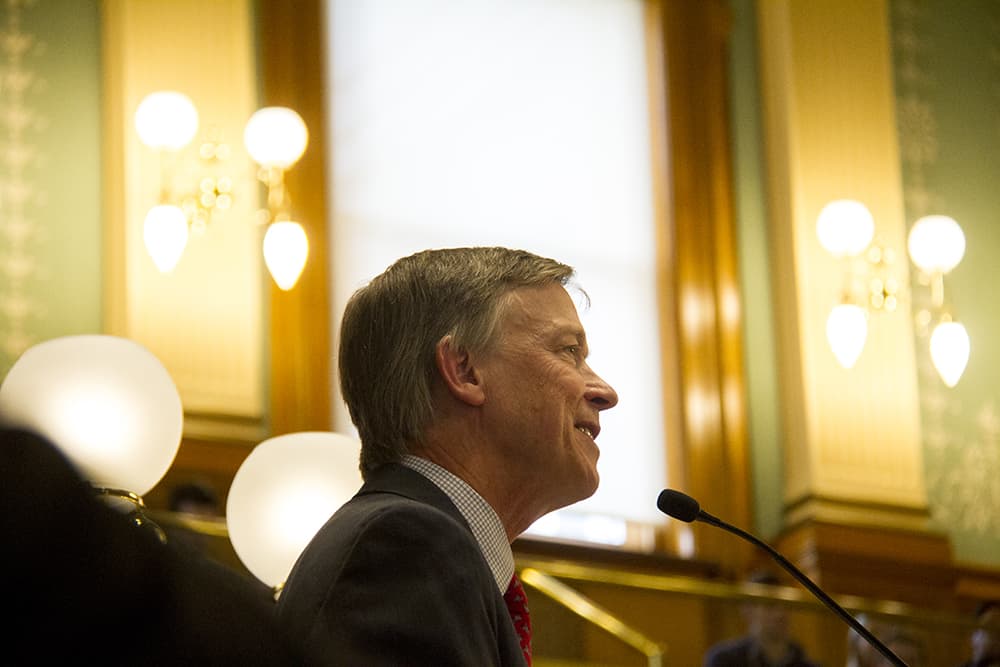
SACRAMENTO, California — Colorado Gov. John Hickenlooper told California state senators Tuesday to set standards for edible marijuana goods and driving under the influence of cannabis as soon as possible to avoid repeating mistakes his state made when it legalized recreational pot.
The senators heard from Hickenlooper as the Legislature prepares to regulate sales of the drug. California voters legalized recreational marijuana in November through Proposition 64.
Colorado legalized recreational marijuana in 2012 and faced a host of challenges implementing the new policy, from taxing marijuana dispensaries to keeping edible marijuana products away from children.
"We made an awful lot of mistakes as we were trying to wrestle with some of these issues," Hickenlooper said.
California faces a similar challenges implementing Proposition 64. Marijuana sales under the law are scheduled begin in 2018.
"We are in a sprint between now and Jan. 1 to be able to implement the mountain of rules and regulations associated with Prop 64," state Sen. Mike McGuire, D-Healdsburg, said during the committee hearing where Hickenlooper spoke.
Colorado saw a rise in child hospitalization because of kids ingesting edible marijuana products in non-child-proof containers, Hickenlooper told the committee. The state now requires edibles to be sold in child-proof containers and has stricter regulations on labeling such products.
California faces challenges determining how to enforce laws prohibiting driving under the influence of marijuana, Sen. Jerry Hill, D-San Mateo, said.
"There is no real quantifiable, definitive impairment level as there is with our alcohol," Hill said. "That's been the criticism or the challenge that we've been faced with here in terms of defining what impairment would be."
Colorado struggled to quickly pass laws to regulate impaired driving for that reason, Hickenlooper said. He recommended California lawmakers start to address that issue quickly because it will likely take time to resolve.
Marijuana dispensaries generally are forced to pay taxes in cash because federal law prohibits banks from taking their money, which can present a challenge for the state and local governments collecting taxes from the businesses, Sen. John Moorlach, R-Costa Mesa, said. State analysts estimate the California legal marijuana industry could generate more than $1 billion in tax revenue each year.
Other speakers at the hearing, including local and state officials charged with overseeing the marijuana industry, also spoke about challenges implementing regulations so sales can begin next year.
"We are flying the plane while we are building it," said Amy Tong, director of the California Department of Technology.
Marijuana is still illegal at the federal level. Recently confirmed U.S. Attorney General Jeff Sessions has said he opposes marijuana legalization but has not announced specific plans to target marijuana industries in states that have legalized the drug.
Colorado has worked with federal authorities to crack down on black market marijuana sales, which Hickenlooper highlighted as critical to the success of the legal marijuana industry in the state. Hickenlooper said he is optimistic President Donald Trump will not crack down on Colorado's legal marijuana industry, pointing to comments the Republican made during his campaign indicating he was open to letting states that have legalized marijuana continue to do so.
"We're optimistic that he's going to let the experiment continue," Hickenlooper said. "But they're going to closely watch it, I'm sure."













